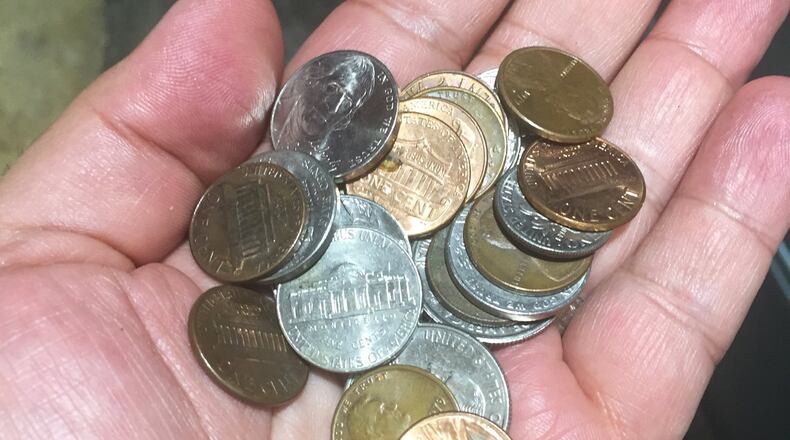READ THE LATEST STORIES FROM TOM STAFFORD HERE.
As geezers like me are all-to-willing to drone and groan about, even change has changed.
For the most part, this has me feeling sorry for younger people who have to deal with dinosaurs like me – Jurassic age elder raptors who at times make guttural sounds and lash out in frustration for reasons that elude young folks born on this side of the microchip time warp.
In my mind, I can hear the best trained and most polite cashiers of today tell me: Yes, sir, as you’ve repeatedly told me, things have changed. My own belief is that things will go more smoothly if we all could accept that reality and act accordingly.
Ah, but change can be a hard thing.
Even on days when I avoid dealing with change by using credit cards, my behavior must seem bizarre to Gen Xers, millennials and the various labels that follow.
RELATED: South grad reflects on 30 years with highway patrol
There I stand, shuffling through a wallet chock full of junk: discount cards I bought to support the child of a long ago neighbor’s baseball team; loyalty cards to places I’ve been disloyal to; and slips of papers that have phone numbers and names like “James” or “Marie” that seem to be in my handwriting but of which I have no memory.
This means the people working the register get to see me shuffle through 47 of the 49 cards and pieces of paper I have before I pluck out the charge card just as the 48 other items scatter on the floor.
This is all prelude to my asking whether I should swipe or insert the card, then daydream while the machine does its thing and have to be reminded to either push a green button to OK the purchase or, in the cramped space available, scrawl out a signature that looks like it belongs to a guy who’s the person of interest in the latest Amber Alert.
All this has to have cashiers thinking: If people like this are the spawn of the Greatest Generation, how great could it really have been?
Things turn slightly more bizarre when I’m in an automated checkout lane and repeatedly tell the voice in the machine that I’ve already placed the item in the bagging area and don’t care to be criticized by a digital entity that I haven’t.
MORE: Stafford: Learn about cancer while applauding survivors
I suspect one day that officers will approach me in the store and say: “Mr. Stafford, the manager said that you were talking to the machine? Is that true?”
That will only lead to further trouble when Inappropriate Tom takes over and says: “Yes, officers, I was talking to the machine. Can I introduce you?” Later, I’ll more politely inquire as to whether the bail system accepts credit cards.
But, in my defense, my bizarre behavior is an attempt to avoid the real trouble that arises when elder raptors like me pay for things like a cup of coffee in cash and then try to help the cashier by providing additional loose change over and above what’s needed to pay the bill.
Little do the cashiers know — less do they care — that we’re pushing an extra three pennies their way for a $3.03 bill so they can give us three dollars back in change instead of the more unwieldy $2.97?
It’s at this precise point that generational differences threaten to bring the economy to a grinding halt.
RELATED: Stafford: Imperfect traffic leads to perfect day debate
Because to people on the other side of the counter, it’s simple.
“Old dude, you’ve given me enough money. Why would you give me more and make the whole thing more complicated? What’s the sense in that? Do us both a favor and just hold out your hand and take the change. Chill, my wrinkled brother.”
So, for the time being, I’ve given up.
From now on, I’ll be clinging to the slender hope that I will live long enough to see the coming of the all-digital age of a cashless economy — an age that will usher in the kind of world all elder raptors like me hope for: A world which there is no more change.
About the Author
